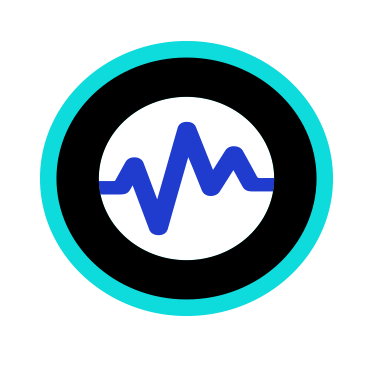VR-neurostimulation combo device gets crowdfunded. While there has been plenty of buzz about virtual reality technology in clinical settings, it seems there is consumer demand health-focused VR as well. Kortex, a new wearable from medical device company Fisher Wallace Labs, uses a combination of the neurostimulation and VR to improve sleep quality and stress management.
Read MoreFor years the concept was championed by the likes of Nuance, whose natural language processing (NLP) technology focused on allowing clinicians to dictate notes and directions into a laptop, tablet or even a smartphone.
Read MoreFor years the concept was championed by the likes of Nuance, whose natural language processing (NLP) technology focused on allowing clinicians to dictate notes and directions into a laptop, tablet or even a smartphone. But with the emergence of personal digital assistants like Cortana and Alexa, innovators are looking to the home healthcare space and even the patient’s hospital room as the next launchpad for these platforms.
Read MoreLurie Children’s Hospital of Chicago has selected healthcare communication company MD Interconnect to provide its cloud-based, mobile messaging platform called RapidConnect to the hospital. Developed by doctors, the RapidConnect messaing system works for both smartphones and desktop computers to replace paging systems and their companion devices in hospitals to provide faster, more secure and more coordinated communication for care teams.
Read MorePeople who turn to WebMD in their quest for health information can now do so without lifting a finger – they can use their voice, through a new integration with Amazon Alexa.
Read MoreInstead of turning to Google with a health-related question, Amazon has made it so Alexa can scour WebMD to answer users’ medical queries.
Read MoreAmazon’s Alexa already boasts more than 10,000 skills, but has now added medical advice to its repertoire. WebMD announced today that it’s launched its own skill for all Alexa-enabled devices (including the Echo, Echo Dot, and Fire TV), which can answer basic health-related queries.
Read MoreLenovo Health has joined forces with Orbita, a connected home healthcare technology vendor, to unveil a virtual home care system at HIMSS17 based on two recently debuted products: Lenovo Smart Assistant and Orbita Voice.
Read MoreVocal biomarkers have amazing potential in reforming diagnostics through their accuracy, speed and cost-effectiveness in the areas of mental illnesses as well as physical diseases such as Parkinson’s or coronary artery disease.
Read MoreFor many, the choice of a smart home device depends on a buyer’s existing devices and use of a platform. But loyalty to a platform matters less to an aging population who may be interested in a particular feature and ease of functionality.
Read MoreYou know how things can sneak up on you, particularly trends. There are dribs and drabs and all of a sudden a swirling tornado of evidence that something is happening? I have had that experience these last few weeks with a realization that the phenomenon of voice will likely be the next meaningful user interface in healthcare.
Read MorePeople are living longer, but not necessarily healthier. It’s unsettling to think about it in these terms but, in our lifetime, it’s unlikely that any of the lifestyle related diseases—like obesity, diabetes and heart disease—will be cured by a pill. Yet the most effective weapons we have to battle chronic disease include more daily activity and exercise, a healthier diet and weight management, and lower stress — behaviors that are seemingly the most difficult to sustain.
Read MoreHow you talk could reveal heart disease or concussions, say researchers and companies developing the novel technology.
Read MoreThe development of vocal biomarkers to detect things like depression and stress has been an area of interest for some time. When Sharecare acquired Feingold Technologies, they collaborated on a voice analysis app analyzing spectral data in the tone of the user’s voice when they speak on the phone to pick up signs stress and depression, among other things. Cogito also developed a voice analysis tech adopted by health insurers like Humana, Aetna, Blue Cross and Blue Shield, and Partners Healthcare.
Read MoreBoston-based Sonde Health, a recent spin-out of PureTech Health, has licensed a health-focused voice scanning technology from MIT’s Lincoln Laboratories.
Read MoreThere’s long been talk in medicine about the need to listen more to the patient voice — and now that mantra is being taken literally.
Read MoreCompany licenses MIT technology and collaborates with experts to objectively diagnose and monitor medical concerns through vocal cues.
Read MoreIn the foreseeable future, your medical exam could include a speaking portion – and be done on your smartphone. Sonde Health, a PureTech initiative, just announced it’s received an exclusive license from MIT’s Lincoln Laboratory for technology capable of analyzing someone’s voice and detecting medical conditions.
Read MoreLife sciences incubator PureTech Health (LON:PRTC), unfazed by the worldwide impact of the U.K.’s vote to leave the European Union, announced its latest venture today: Sonde Health, which aims to use a voice-based technology to diagnose mental and physical ailments.
Read MoreSonde Health is developing voice-based technologies capable of diagnosing medical conditions by analyzing vocal biomarkers—acoustic characteristics in the speakers voice.
Read More




















